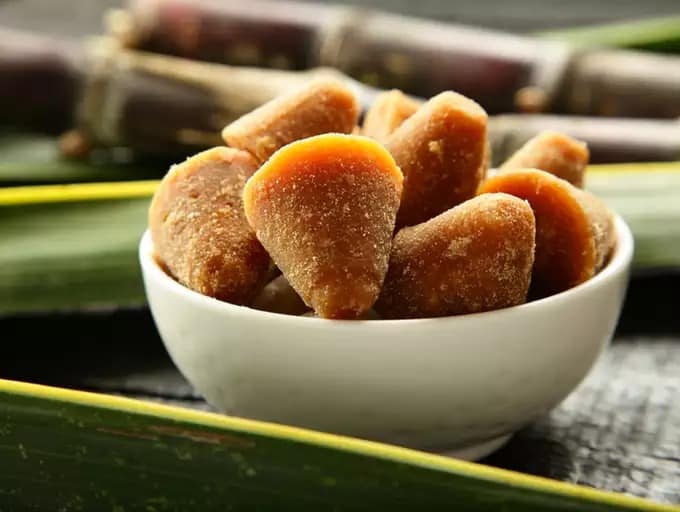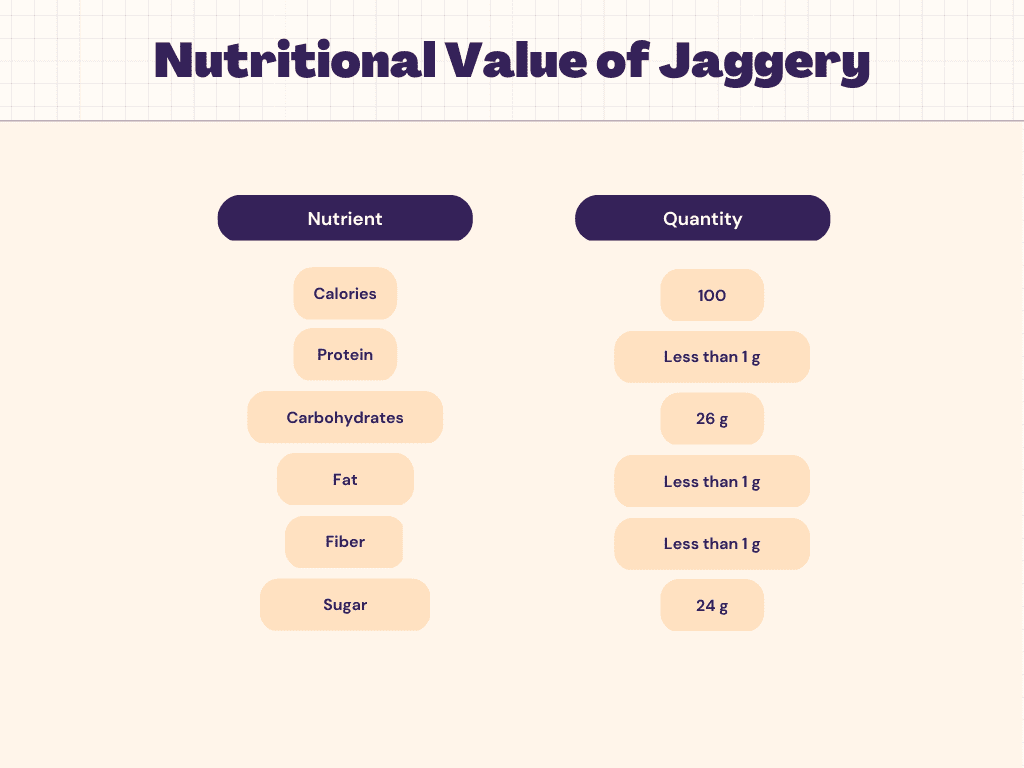Gur, another name for jaggery, is a popular sweetener in Southeast Asia and Africa. It is a less-refined variety of sugar, thus there is still a sizable quantity of molasses in it. It’s common to hear claims that jaggery is “healthier” than other types of sugar. Studies on the overall health advantages and hazards of jaggery are currently being conducted, despite the fact that science has validated some of these claims.
Nutritional Value of Jaggery
Nutritional Facts of Jaggery
Carbs
100 grams of Jaggery contains 98.0 g of carbohydrates
Fats
100 grams of Jaggery contains 0.1 g of fats, which makes Jaggery good for weight loss.
Protein
0.4 g of Protein is found in 100 grams of Jaggery.
Health Benefits Of Jaggery
- Helps with respiratory problems – Jaggery is thought to clear the body of dust and other impurities, bringing ease to the lungs, digestive system, stomach, and intestines.
- Helps with Weight Loss – Long chains of sucrose make up the complex sugar known as jaggery. The sucrose takes the body a while to digest, so the energy is released gradually over a longer period of time. Check our Weight Loss Plans.
- Regulates blood pressure – The blood arteries are dilated by jaggery, allowing for smooth flow and stabilizing blood pressure.
- Excellent energy source – This is due to the fact that it is unprocessed, which makes sure that blood sugar levels aren’t immediately altered but instead rise gradually.
- Increases Immunity – Jaggery contains significant amounts of minerals including selenium and zinc as well as antioxidants. This aids in reducing the risk of free radical damage and strengthening resistance to certain diseases. It is widely consumed in the winter because of this.
Vitamins & Minerals in Jaggery
It has a content of 1 g/kg of vitamin B complex, 19 calories per tablespoon, 1 mg/kg of folic acid, 5 g/100 g of calcium, and 1 mg/g of iron.
The Bottom Line
Jaggery, often referred to as Panela, is a fantastic source of vitamins, minerals, and proteins. These nutrients are the fundamental elements of a balanced diet. Jaggery includes a significant amount of iron and copper proportion compared to white sugar. Jaggery belongs to a top class of natural sweeteners due to its generous nutritional content. It is categorized as an energy meal that regulates bodily systems and is a well-known blood-purifying agent among residents of tropical regions.
FAQs
How much Jaggery can I eat in a day?
It is advised to consume 10 grams or less of jaggery each day after meals. A single serving of jaggery during the day will satisfy 4% of our bodies’ daily demand for minerals because it includes 16 mg of minerals per 10 g.
Should I eat Jaggery before or after exercise?
While many people choose to consume fruits or nuts before working out, you may also have an incredibly simple concoction of grated coconut and jaggery powder to get you going.
What are the benefits of Jaggery?
- Helps with respiratory problems
- Helps with Weight Loss
- Regulates blood pressure
- Excellent energy source
- Increases Immunity
What is the best time to eat Jaggery?
Everyday consumption of jaggery is advised since it aids in digestion and avoids constipation by igniting our body’s digestive enzymes.









